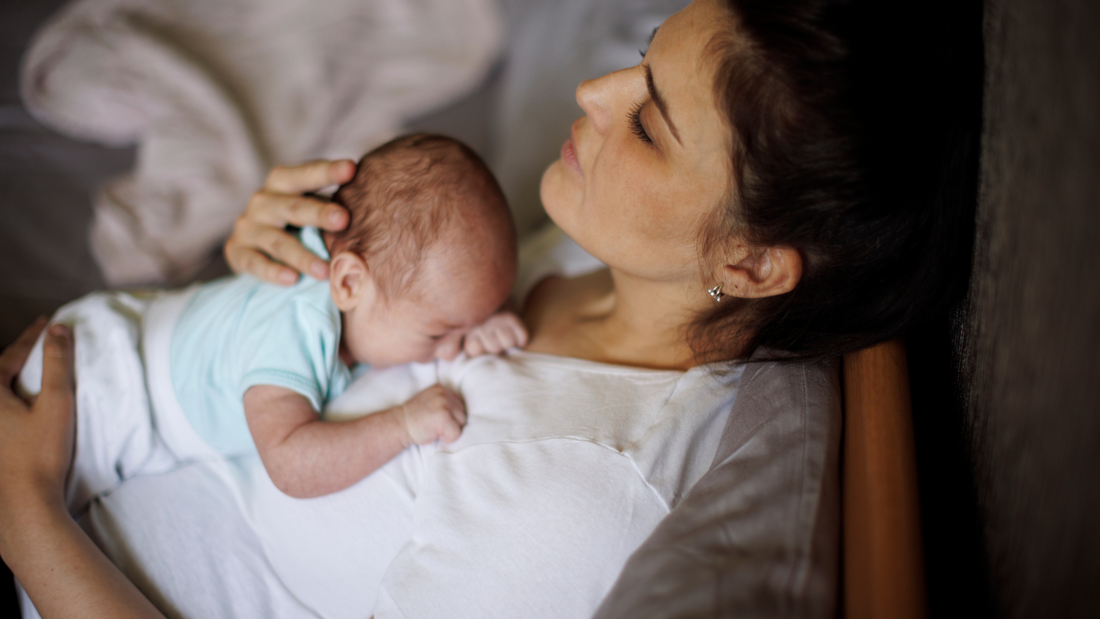
What to do after an episiotomy? Our natural tips for gentle relief
Share
You've just given birth. It's undoubtedly one of the most powerful and life-changing moments of your life. And yet, as you get to know your baby, your body continues to weather a storm. If you had an episiotomy during your delivery, you may be experiencing pain, tightness, and discomfort that's becoming part of your daily life. Good news: there are natural, effective, and soothing solutions to soothe you.
Episiotomy: an intimate scar to be treated gently
An episiotomy is an incision made in the perineum (the area between the vagina and anus) to facilitate the birth of the baby. It is performed in certain cases when the baby is slow to come out or when the perineum is too tense. While this procedure can prevent a more serious tear, it is still an injury that must be treated with kindness.
After giving birth, this area may be swollen, painful, and tender. Healing generally takes a few days to a few weeks, depending on the depth of the incision, the type of stitches, and your own recovery capacity. But beyond time, it's the quality of care you give your body that makes the difference.
Cold: your best postpartum ally
Contrary to popular belief, cold is a treasure trove for relieving perineal pain. Whereas heat was once systematically recommended, recent observations show that cold acts more quickly and effectively to reduce inflammation, soothe pain, and promote healing.
At Maholi, we have developed cold packs specially designed for this delicate area:the Holis . These packs, slipped into a soft cover, are worn like a sanitary napkin and provide a feeling of deep freshness for more than 1.5 hours for the day version, up to 2.5 hours for the night version. Their natural gel and Oeko-Tex certified fabric guarantee you a healthy and comfortable application, even right after giving birth.
Find out more here about how to use perineal cryotherapy during the perinatal period.
What will the cold bring you?
- An immediate analgesic effect : the pain is numb, relief is rapid.
- An anti-inflammatory action : the swollen area deflates gently, the tissues regenerate more easily.
- A reduction in possible hematomas or hemorrhoids , which are common after childbirth.
- A feeling of mental freshness , because taking care of yourself also soothes your mood.
This ritual can be practiced from the first hours postpartum, several times a day, in 20-30 minute increments, or longer if your body allows it. And best of all: no need to sit on a bidet or handle melted ice… Holi slips discreetly into your underwear, without embarrassment, even when baby calls you.
Natural and non-aggressive intimate hygiene
After an episiotomy, it's essential to maintain good hygiene to avoid infections without further damaging an already fragile area. The key here is gentleness . Cleanse with lukewarm water, without scented soap or foaming products. A spray of floral water or chamomile infusion can also work wonders to refresh and soothe.
After each visit to the bathroom, do not hesitate to rinse the area with clean water, then gently pat dry with a clean towel . Ideally, if you can, you should let the area air dry for a few minutes, especially before applying a cold pack.
Avoid tight-fitting clothing, synthetic underwear, or scented sanitary pads: your skin needs to breathe. Opt for loose-fitting organic cotton underwear and remember to change your pads often to maintain a healthy environment.
Plants, these precious allies of healing
Some plants have naturally healing, soothing, and antiseptic properties. Whether used as an infusion or applied topically, they can be a wonderful addition to your healing process.
Among the most effective:
- Chamomile : calming and anti-inflammatory, perfect as a sitz bath or compress.
- Calendula : regenerating and gentle, it promotes healing without irritating.
- Witch hazel : powerful decongestant, very useful in cases of heat or edema.
Really rest, physically and emotionally
Episiotomy pain can make even the simplest tasks difficult: sitting, breastfeeding, and carrying your baby. It's crucial to listen to yourself and slow down . Make yourself comfortable, use a nursing pillow or float to relieve pressure, alternate positions... and most importantly, dare to ask for help.
Your perineum is a muscle. It's been stretched and torn, and it deserves special attention. If you feel the need, don't hesitate to consult a midwife specializing in perineal rehabilitation. Some even offer gentle massages or personalized postpartum support.
A final word: you already do enough.
You are rebuilding your body, your energy, your identity as a mother. Don't rush. Healing takes time, and every woman experiences this period differently. Take care of yourself with gentleness, patience, and kindness .
And don't forget: at Maholi, we're here to support you, without judgment, without taboos, with solutions designed by women, for women.
💡 Quick FAQ
Can I use cryotherapy the day after giving birth?
Yes, and it's even recommended! Applied in the first few hours, the Maholi cold pack quickly reduces inflammation and soothes pain.
Does cold slow down healing?
Not at all. It promotes it by reducing swelling, micro-bleeding and stimulating local circulation.
What if I have points?
Cryotherapy is perfectly acceptable. Just make sure to keep the area clean and ask your midwife for advice if necessary.
🧊 Want immediate and natural relief?
Discover Maholi cold packs , to insert into your underwear for discreet comfort. A comforting, reusable solution that is 100% made in France.




